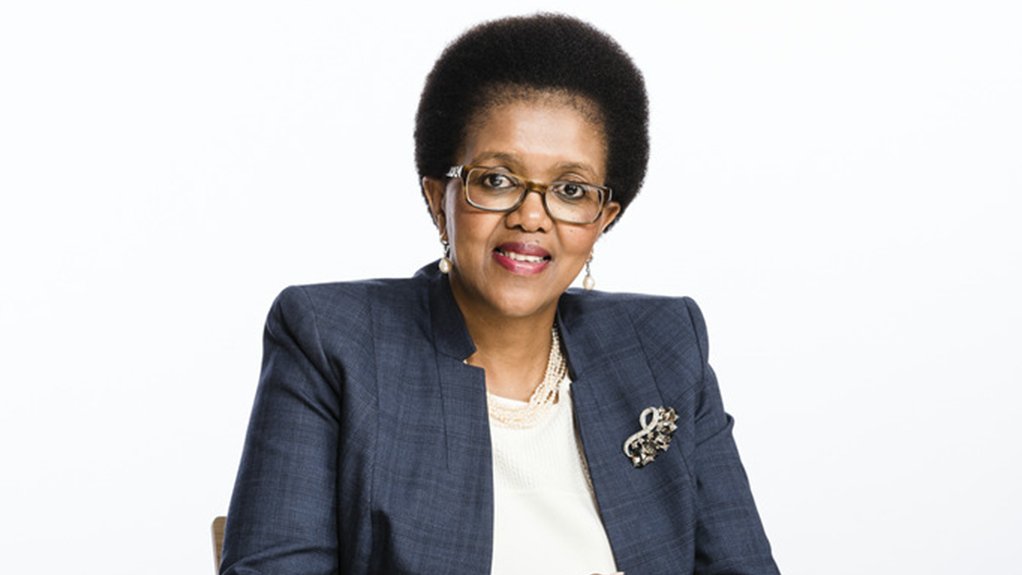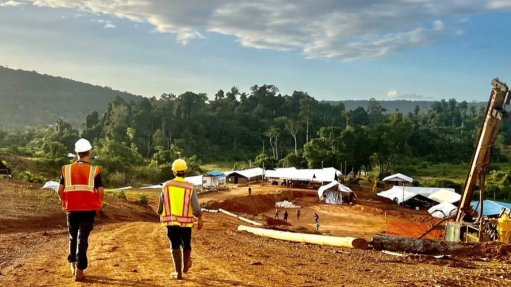Minerals Council celebrates women in mining, speaks out about persistent issues
The Minerals Council South Africa has chosen the forty-fifth International Women’s Day on March 8 to host its own celebration of women in mining, or rather the “unsung heroes of the industry”.
Since being allowed to work in underground mining since 1996, women have come to represent 14% of the total mining workforce, but a panel of experts speaking during the Minerals Council’s Women’s Day conference, agreed that this is not enough.
Minerals Council CEO Roger Baxter reiterated how gender remained on the agenda for the council and affirmed that the industry body continued guiding its members on promoting and monitoring equality initiatives.
Minerals Council president Nolitha Fakude highlighted that workplaces had the power to impact on perceptions of gender, as did peoples’ backgrounds, culture and personal experiences.
She mentioned how corporate culture could function as a starting point to address unconscious bias.
Through the council’s Women in Mining Leadership Forum, and various other initiatives and guidelines, it aims to achieve 40% women workforce representation in the mining industry over the medium term.
Fakude said that although much work had been done on mining modernisation and transformation, women were still plagued by bullying, gender-based violence, unconscious bias, sexism, harassment and victimisation in the mining industry.
“We have to continue acting and supporting zero tolerance for these phenomena.”
Department of Mineral Resources and Energy (DMRE) CFO Yvonne Chetty pointed out that women still struggled to enter what was traditionally a male-dominated industry, and, those who were within it, struggled to retain their positions.
She remarked that women were still excluded in the workplace through cultural biases, a lack of access to resources and unequal access to education. “Women in mining experience exclusion in decision-making, security and safety, social norms and economic equalities.”
Chetty added that Namibia ranked the highest in Africa in terms of gender parity in the mining sector – women comprise 18% of the country’s mining workforce, followed by South Africa, but this remains below ideal levels.
She explained that women, by nature, had special needs compared with men, particularly as equipment, from trucks to personal protective equipment (PPE), have historically been designed with men in mind.
The DMRE is drafting a Women Empowerment and Gender Equality Strategy to address barriers and challenges to bring about gender transformation.
She admitted that changing technologies in the industry had resulted in some change in working environments and afforded more women access and enablement to work in the industry.
Speaking to this, Anglo American early talent head Vanessa Naicker said advances in technology had caused shifts in the mining industry such as a rapid adoption of data analytics, machine learning, artificial intelligence, remote operating centres and other new ways of work. This, in turn, had impacted on workforce demographics.
“We are seeing a trend toward matrixed work, dispersed workforces and much more multidisciplinary skills requirements, alongside more co-creation and cooperation. Workforce agility is becoming the new power skill.
“Additionally, technology and modernisation is enabling a step-change in safety and sustainability. This affords women more opportunities to access the sector, and increased willingness from them to do so.”
Naicker made mention of the Minerals Education Trust Fund, which had, since its inception in 1999, disbursed more than R530-million in grants to funded institutions. Today, major mining and related companies that operate in South Africa jointly contribute about R45-million a year to the fund.
About 240 academic staff members at nine higher education institutions are being supported by the fund, having an impact on 4 571 undergraduates registered in three disciplines focused on by the fund – mining engineering, metallurgy and minerals processing and geosciences.
Of these students, 75% are black Africans and 39% are women students.
Naicker said the funds go a long way to think more sustainably about the future of mining and the human capital ecosystem.
Meanwhile, touching on some persistent issues for women in the mining industry, Solidarity occupational health and safety head Hanlie van Vuuren noted that there was still non-adherence by many mining companies to the Minerals Council Women in Mining White Paper guidelines published in March 2020.
These guidelines aim to promote gender diversity and inclusion at all levels of employment, help women attain their full potential, close the pay gap and develop policies to advance and protect women.
Another priority of the White Paper is to have workplaces accommodate women in terms of ablution facilities and improved security, such as moving away from using crowded cages and installing cameras to protect women.
However, Van Vuuren said many companies fail to implement these kinds of changes and accommodations, particularly in terms of PPE and increased safety to avoid sexual harassment.
“Ironic how it was possible to implement physical distancing all of a sudden when Covid-19 struck, but not when over the many years women have complained about being pressed up against men in mining cages,” she lamented.
Van Vuuren added that women are not asking for preferential treatment, but rather recognition, value and consideration of their differences.
She suggested that all companies in the industry reconsider their policies to break present biases and challenge stereotyping of female roles, as well as engender more women’s health programmes and women’s enterprise development programmes, and advance targeted skills development for female representation on boards and management committees.
Baxter and Fakude reiterated that the Minerals Council was assessing how mining infrastructure, such as change houses, underground ablution facilities, lighting and conveyances, could be made safer for women.
Comments
Press Office
Announcements
What's On
Subscribe to improve your user experience...
Option 1 (equivalent of R125 a month):
Receive a weekly copy of Creamer Media's Engineering News & Mining Weekly magazine
(print copy for those in South Africa and e-magazine for those outside of South Africa)
Receive daily email newsletters
Access to full search results
Access archive of magazine back copies
Access to Projects in Progress
Access to ONE Research Report of your choice in PDF format
Option 2 (equivalent of R375 a month):
All benefits from Option 1
PLUS
Access to Creamer Media's Research Channel Africa for ALL Research Reports, in PDF format, on various industrial and mining sectors
including Electricity; Water; Energy Transition; Hydrogen; Roads, Rail and Ports; Coal; Gold; Platinum; Battery Metals; etc.
Already a subscriber?
Forgotten your password?
Receive weekly copy of Creamer Media's Engineering News & Mining Weekly magazine (print copy for those in South Africa and e-magazine for those outside of South Africa)
➕
Recieve daily email newsletters
➕
Access to full search results
➕
Access archive of magazine back copies
➕
Access to Projects in Progress
➕
Access to ONE Research Report of your choice in PDF format
RESEARCH CHANNEL AFRICA
R4500 (equivalent of R375 a month)
SUBSCRIBEAll benefits from Option 1
➕
Access to Creamer Media's Research Channel Africa for ALL Research Reports on various industrial and mining sectors, in PDF format, including on:
Electricity
➕
Water
➕
Energy Transition
➕
Hydrogen
➕
Roads, Rail and Ports
➕
Coal
➕
Gold
➕
Platinum
➕
Battery Metals
➕
etc.
Receive all benefits from Option 1 or Option 2 delivered to numerous people at your company
➕
Multiple User names and Passwords for simultaneous log-ins
➕
Intranet integration access to all in your organisation





















